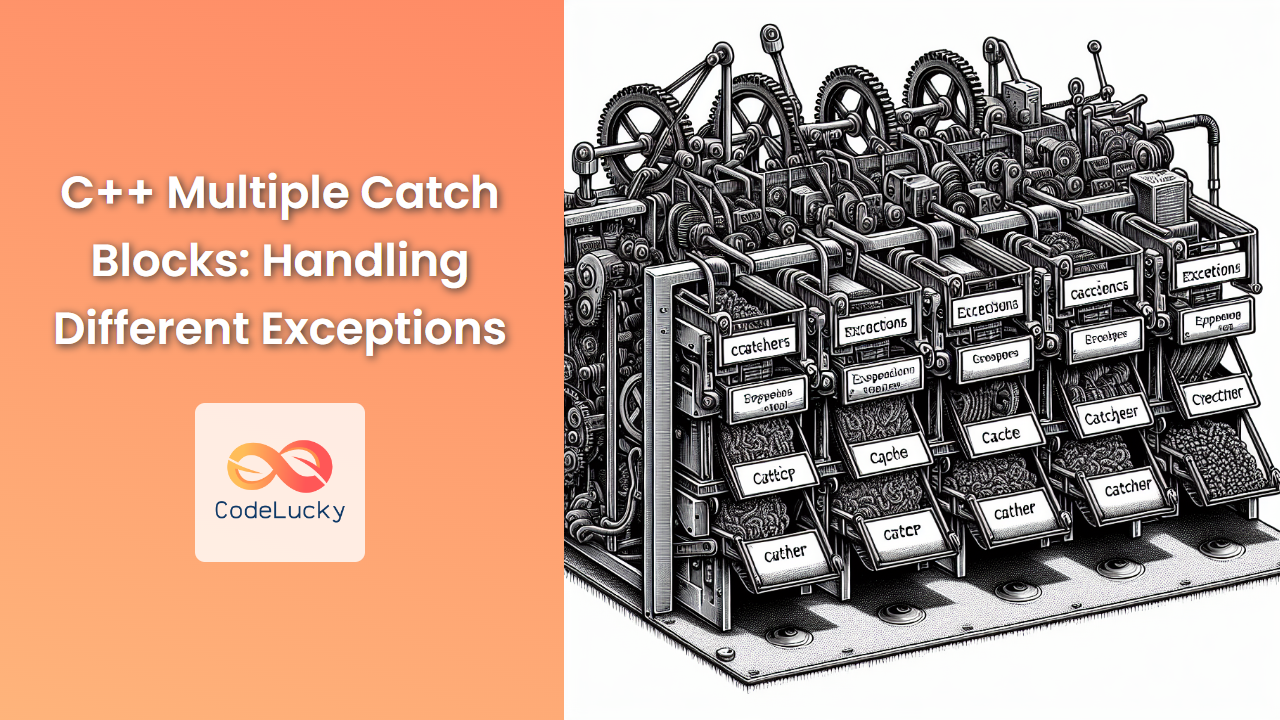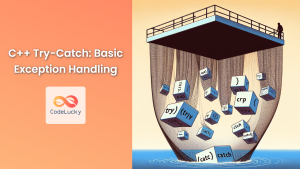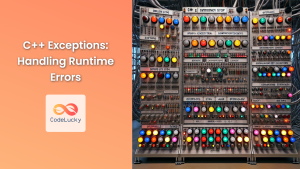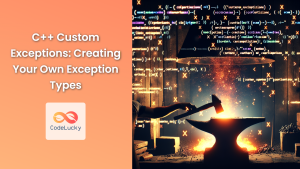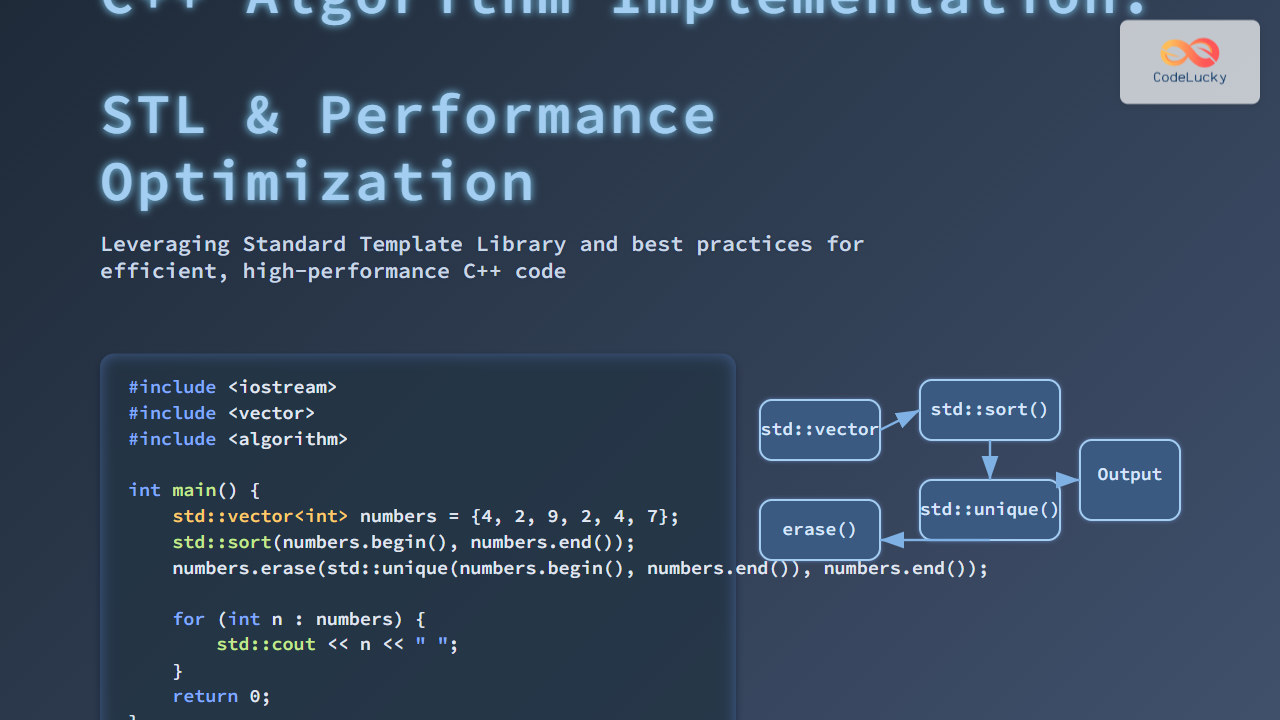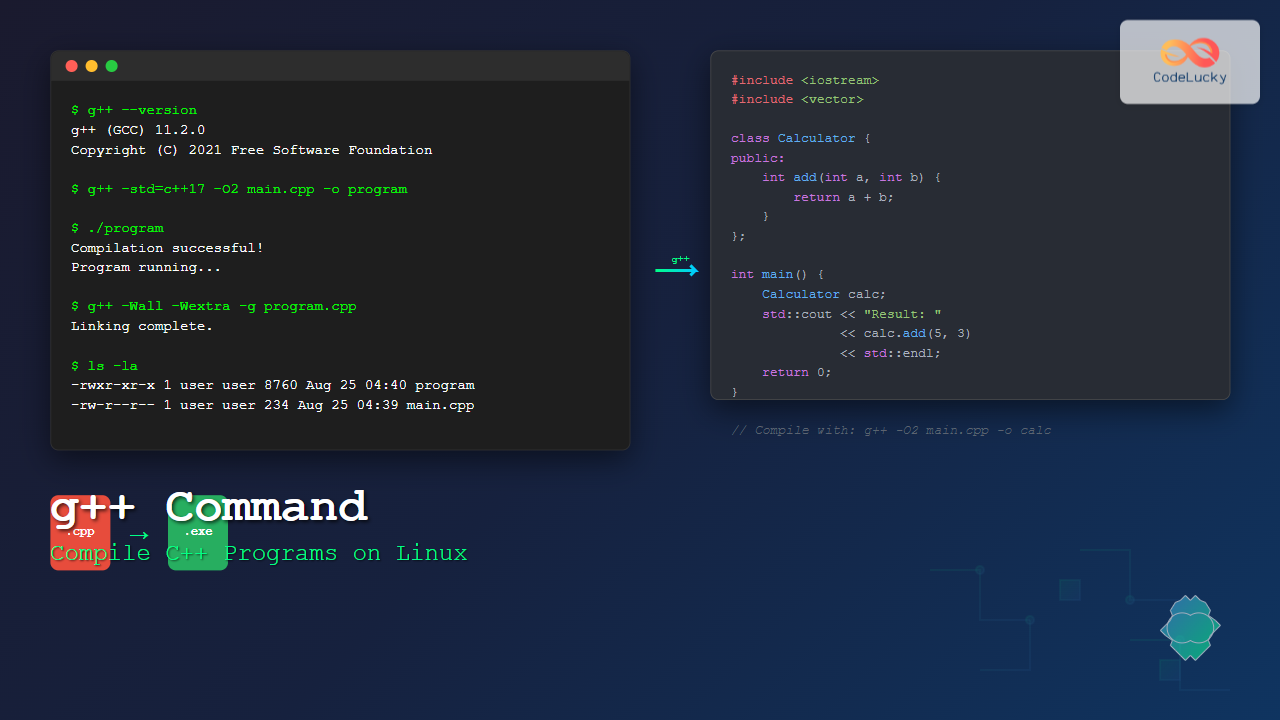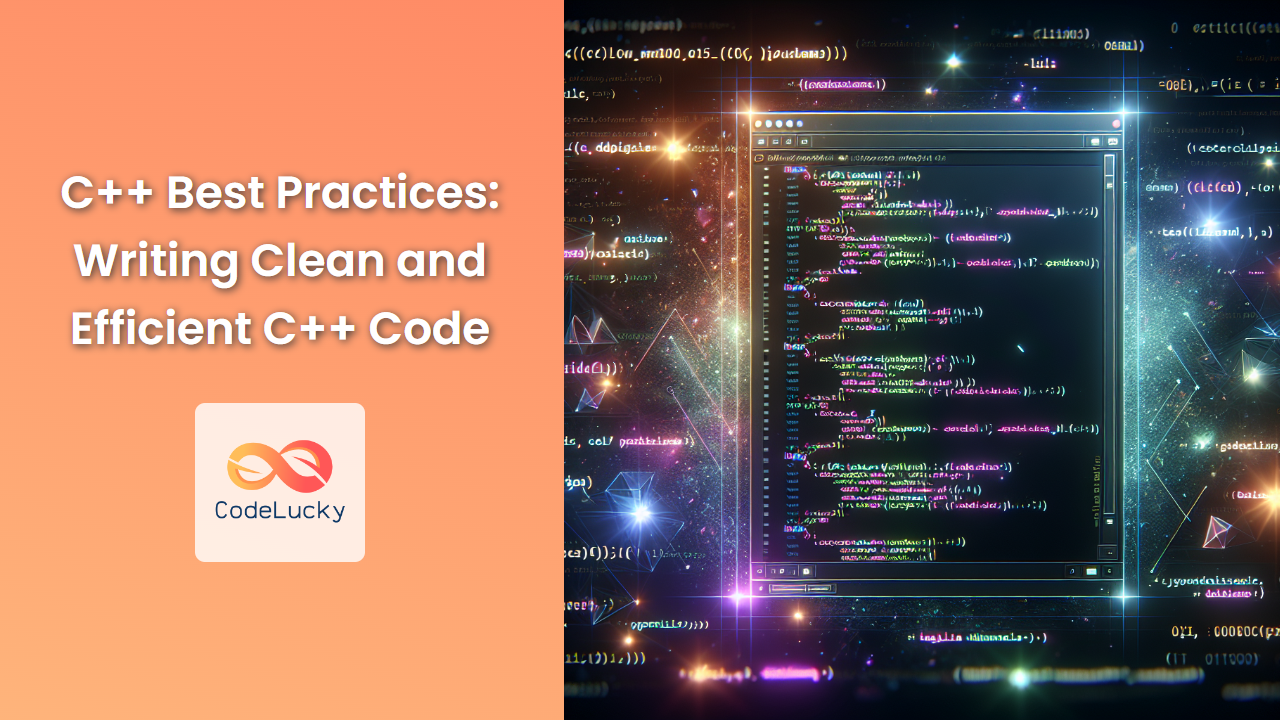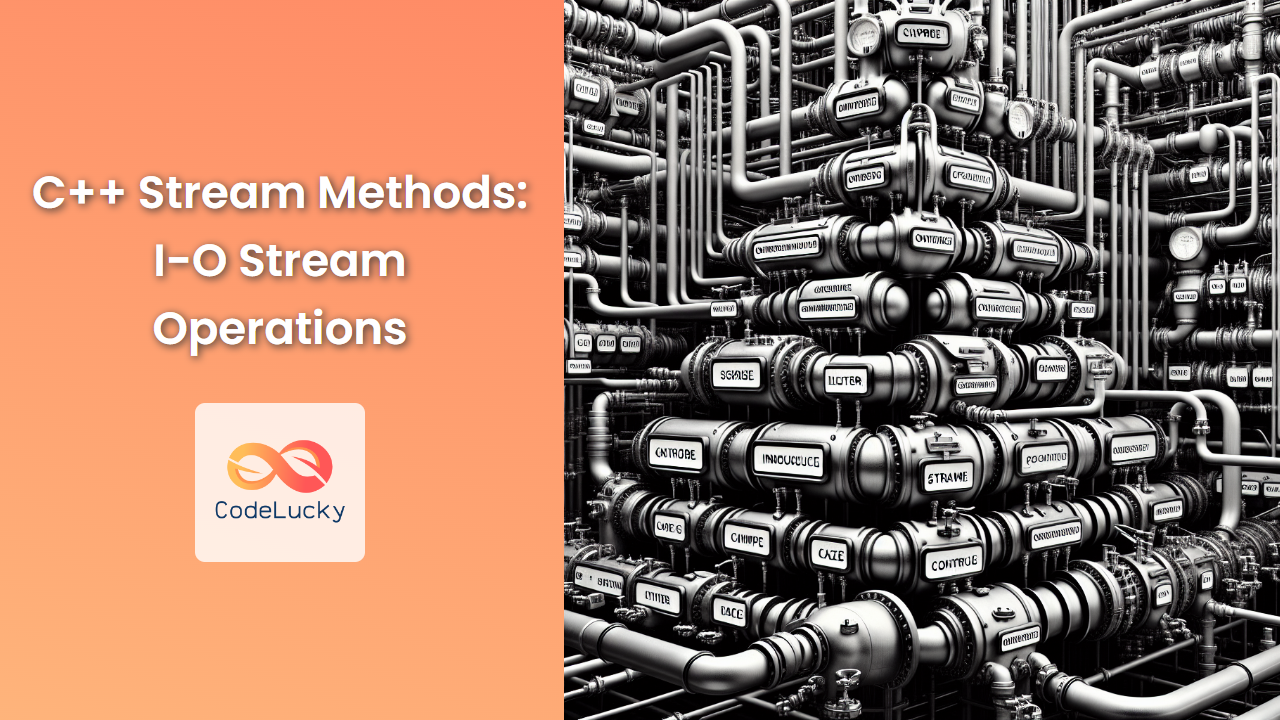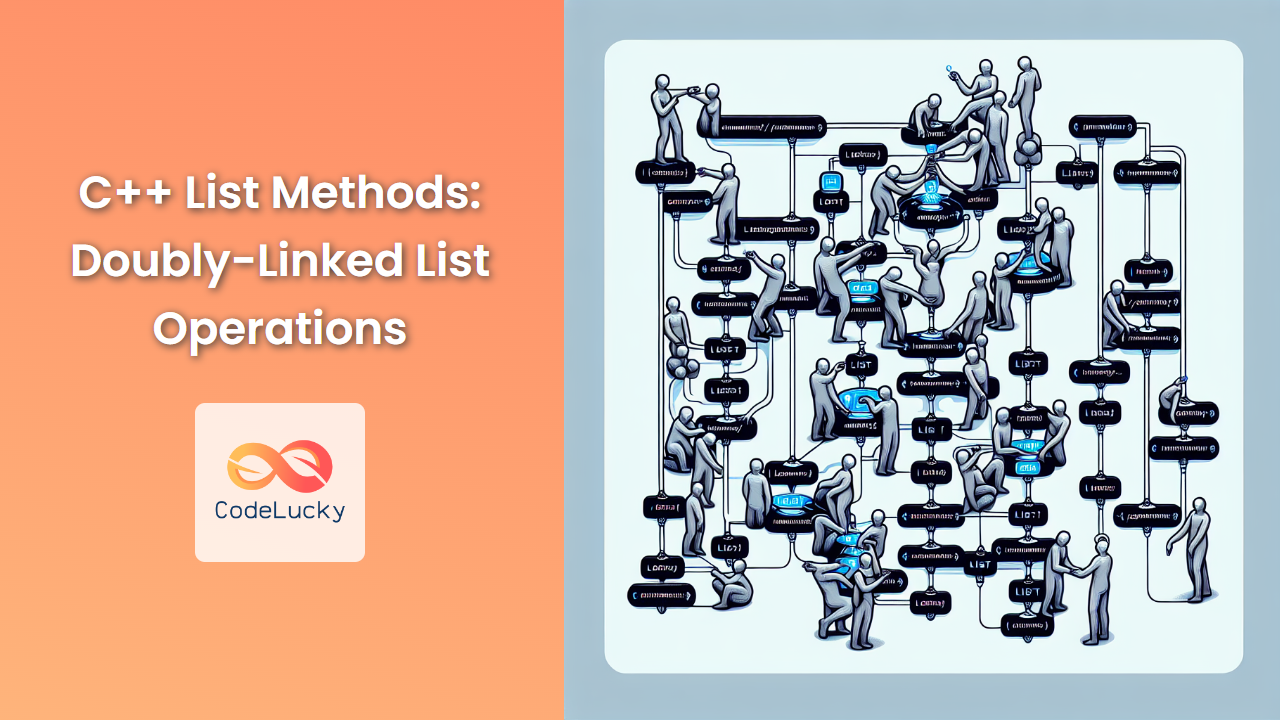In the world of C++ programming, exception handling is a crucial skill that can make your code more robust and reliable. One of the most powerful features of C++'s exception handling mechanism is the ability to use multiple catch blocks. This allows you to handle different types of exceptions in different ways, providing a more nuanced and flexible approach to error management.
Understanding Multiple Catch Blocks
When you're dealing with complex systems or libraries, it's common to encounter various types of exceptions. C++ allows you to catch these different exception types using multiple catch blocks. This feature enables you to write more specific and targeted error-handling code.
Let's start with a basic example to illustrate this concept:
#include <iostream>
#include <stdexcept>
int main() {
try {
// Some code that might throw different types of exceptions
throw std::runtime_error("A runtime error occurred");
}
catch (const std::runtime_error& e) {
std::cout << "Caught a runtime_error: " << e.what() << std::endl;
}
catch (const std::exception& e) {
std::cout << "Caught a standard exception: " << e.what() << std::endl;
}
catch (...) {
std::cout << "Caught an unknown exception" << std::endl;
}
return 0;
}
In this example, we have three catch blocks:
- The first catch block handles
std::runtime_error. - The second catch block handles any
std::exception(which is the base class for most standard exceptions). - The third catch block (with
...) is a catch-all that handles any other type of exception.
When you run this code, you'll see the following output:
Caught a runtime_error: A runtime error occurred
🔍 Key Point: The order of catch blocks matters! C++ will use the first matching catch block it encounters.
Handling Multiple Exception Types
Now, let's explore a more complex example where we handle multiple types of exceptions. We'll create a simple banking system that can throw different exceptions based on various error conditions.
#include <iostream>
#include <stdexcept>
#include <string>
class InsufficientFundsException : public std::exception {
public:
const char* what() const noexcept override {
return "Insufficient funds in the account";
}
};
class AccountNotFoundException : public std::exception {
public:
const char* what() const noexcept override {
return "Account not found";
}
};
class BankingSystem {
public:
void withdraw(int accountId, double amount) {
if (accountId < 0) {
throw AccountNotFoundException();
}
if (amount > 1000) {
throw InsufficientFundsException();
}
if (amount < 0) {
throw std::invalid_argument("Invalid withdrawal amount");
}
// Perform withdrawal
std::cout << "Withdrawal of $" << amount << " successful" << std::endl;
}
};
int main() {
BankingSystem bank;
try {
bank.withdraw(123, 500); // Successful withdrawal
bank.withdraw(-1, 100); // Account not found
bank.withdraw(456, 1500); // Insufficient funds
bank.withdraw(789, -50); // Invalid amount
}
catch (const InsufficientFundsException& e) {
std::cout << "Error: " << e.what() << std::endl;
}
catch (const AccountNotFoundException& e) {
std::cout << "Error: " << e.what() << std::endl;
}
catch (const std::invalid_argument& e) {
std::cout << "Error: " << e.what() << std::endl;
}
catch (const std::exception& e) {
std::cout << "An unexpected error occurred: " << e.what() << std::endl;
}
return 0;
}
When you run this code, you'll see the following output:
Withdrawal of $500 successful
Error: Account not found
💡 Insight: By using custom exception classes (InsufficientFundsException and AccountNotFoundException), we can provide more specific error information and handle these errors in a more targeted way.
The Importance of Exception Hierarchy
In C++, exceptions follow an inheritance hierarchy. This hierarchy is crucial when catching exceptions because a catch block for a base class will also catch exceptions of any derived classes.
Let's modify our previous example to demonstrate this:
#include <iostream>
#include <stdexcept>
#include <string>
class BankingException : public std::exception {
public:
BankingException(const std::string& message) : m_message(message) {}
const char* what() const noexcept override {
return m_message.c_str();
}
private:
std::string m_message;
};
class InsufficientFundsException : public BankingException {
public:
InsufficientFundsException() : BankingException("Insufficient funds in the account") {}
};
class AccountNotFoundException : public BankingException {
public:
AccountNotFoundException() : BankingException("Account not found") {}
};
class BankingSystem {
public:
void withdraw(int accountId, double amount) {
if (accountId < 0) {
throw AccountNotFoundException();
}
if (amount > 1000) {
throw InsufficientFundsException();
}
if (amount < 0) {
throw std::invalid_argument("Invalid withdrawal amount");
}
// Perform withdrawal
std::cout << "Withdrawal of $" << amount << " successful" << std::endl;
}
};
int main() {
BankingSystem bank;
try {
bank.withdraw(123, 500); // Successful withdrawal
bank.withdraw(-1, 100); // Account not found
bank.withdraw(456, 1500); // Insufficient funds
bank.withdraw(789, -50); // Invalid amount
}
catch (const BankingException& e) {
std::cout << "Banking Error: " << e.what() << std::endl;
}
catch (const std::exception& e) {
std::cout << "Standard Error: " << e.what() << std::endl;
}
return 0;
}
When you run this modified code, you'll see:
Withdrawal of $500 successful
Banking Error: Account not found
🔑 Key Concept: In this example, both InsufficientFundsException and AccountNotFoundException are caught by the BankingException catch block because they inherit from BankingException.
Advanced Exception Handling Techniques
1. Rethrowing Exceptions
Sometimes, you might want to catch an exception, perform some action, and then rethrow the exception for handling at a higher level. Here's how you can do that:
try {
// Some code that might throw an exception
}
catch (const std::exception& e) {
std::cout << "Caught exception. Performing cleanup..." << std::endl;
// Perform cleanup operations
throw; // Rethrow the same exception
}
2. Function Try Blocks
Function try blocks allow you to catch exceptions that are thrown during the initialization of member variables in a constructor. Here's an example:
class Resource {
public:
Resource(int id) {
if (id < 0) {
throw std::invalid_argument("Invalid resource ID");
}
// Initialize resource
}
};
class Manager {
Resource m_resource;
public:
Manager(int resourceId) try : m_resource(resourceId) {
// Constructor body
}
catch (const std::exception& e) {
std::cout << "Error initializing Manager: " << e.what() << std::endl;
throw; // Rethrow the exception
}
};
int main() {
try {
Manager manager(-1);
}
catch (const std::exception& e) {
std::cout << "Caught in main: " << e.what() << std::endl;
}
return 0;
}
This code will output:
Error initializing Manager: Invalid resource ID
Caught in main: Invalid resource ID
Best Practices for Using Multiple Catch Blocks
-
Order matters: Always place catch blocks for derived exception classes before those for base classes.
-
Use specific exceptions: Create and use specific exception classes for different error conditions to make your error handling more precise.
-
Catch by const reference: Catch exceptions by const reference to avoid unnecessary copying and to prevent slicing.
-
Avoid empty catch blocks: Always handle or log the exception in some way. Empty catch blocks can hide important errors.
-
Use a catch-all block judiciously: A catch-all block (
catch (...)) can be useful as a last resort, but be careful not to swallow unexpected exceptions silently.
Conclusion
Multiple catch blocks in C++ provide a powerful mechanism for handling different types of exceptions in a structured and efficient manner. By understanding the exception hierarchy and following best practices, you can write more robust and maintainable code that gracefully handles various error conditions.
Remember, effective exception handling is not just about catching errors—it's about providing meaningful information about what went wrong and ensuring that your program can recover or fail gracefully when unexpected situations arise.
🚀 Pro Tip: Always test your exception handling code thoroughly. Try to simulate all possible error conditions to ensure your catch blocks are working as expected.
By mastering the use of multiple catch blocks, you'll be well-equipped to handle the complexities and uncertainties that come with real-world C++ programming. Happy coding!

